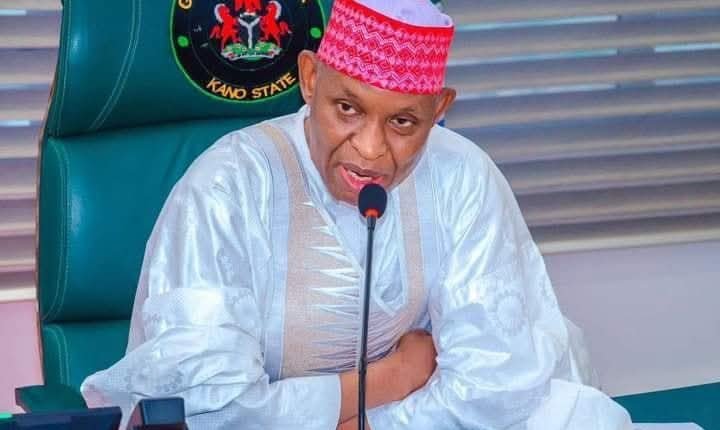KANO’s destiny has always been tied to the soil. On Monday, 4th August, 2025 that bond deepened as Governor Abba Kabir Yusuf unveiled an army of 1,038 young agricultural extension workers, a new force tasked with reviving farms, feeding families, and fighting hunger across the state.
From the bustling grain markets of Dawanau to the endless farmlands stretching across the savannah, Kano’s lifeblood has always been agriculture. Regrettably in recent years, the song of abundance has been strained by hunger and food insecurity. Nigeria, a country with its growing population, struggles with low productivity, import dependence, and a youth generation detached from farming.
However, Alhaji Abba Kabir Yusuf, the Governor of Kano state has decided to change that narrative.
In a ground breaking ceremony which took place at Coronation Hall, Government House, on Monday, 4th August, 2025 the Governor presented letters of employment to the new recruits under the Kano Agricultural and Rural Development Authority (KNARDA).
The governor who described the exercise as a turning point. “You must shun absenteeism, laziness, misconduct, and any form of corruption. As frontline ambassadors of agricultural transformation, your conduct and commitment will directly influence the success of our efforts to revitalize agriculture and empower rural communities across the state,” he told them.
Alhaji Abba Kabir Yusuf while reaffirming the commitment of his administration towards the development of the state described the new officers “change agents” who will guide farmers with modern practices, connect them to improved inputs, and offer innovative solutions.
“We are building a new generation of field workers who will bring modern practices, improved inputs, and innovative solutions to our farms, our cooperatives, and our communities,” he declared.
Indeed, this policy comes at a time when food prices soar nationwide. The National Bureau of Statistics recently reported food inflation above 40% in many areas, threatening millions of households.
For Kano, with its history as the North’s food basket, agriculture is more than an economic sector, it is survival. “This initiative is to enhance food security and raise household incomes,” said State Commissioner of Agriculture, Dr. Danjuma Mahmoud.
Chairperson of the Civil Service Commission, Hajiya Ladidi Ibrahim Garko, called it a “giant stride” in strengthening the state’s agricultural workforce.
For the new recruits, the gesture is life-changing. “We are thankful to the governor for believing in us. We assure you that we will do our best to enhance agricultural production in the state,” said Saminu Sani Garba, who spoke on behalf of the beneficiaries.
Observers and other political analysts say the recruitment could become a model for the nation. While federal promises on agricultural transformation often collapse, Kano’s focus on human capacity stands out. It is not just about distributing fertilizers or importing food, but about training people who can walk with farmers season after season.
With this policy in place, Kano has now become the leading state in Nigeria in terms of extension manpower. More importantly, it has restored dignity to farming by placing knowledge at the center of production.
It should be noted that agriculture, in Kano’s history, is more than economics, it is identity. For centuries, farmers here have endured droughts and floods, built irrigation schemes, and sustained markets that fed nations. Undoubtedly, farming teaches patience, faith, and humility. Perhaps, by investing in extension workers, Governor Yusuf is reviving this philosophy of resilience.
Every seed planted is an act of faith. Every harvest is a lesson in dignity. Perhaps, the 1,038 officers are more than names on a payrollvthey are the hands of change, the bridges between tradition and modernity, the quiet teachers of rural communities.
Therefore, as Kano begins this new journey, one truth stands clear: food security is not charity it is sovereignty.
Therefore, it is gratifying to note that any society that can feed itself certainly, it cannot be enslaved by hunger.
Interestingly, the story of Kano’s agricultural rebirth is still unfolding. But in its first chapter lies a lesson for Nigeria that leadership is not about slogans but about seeds, not about promises but about planting.
To the young officers, the governor’s message lingers: the task is great, but so is the reward. In your hands lies the power to change how Kano eats, how Kano lives, and how Kano dreams.
And so, let the new creed be simple: Every seed is hope. Every harvest is dignity. And every hand that tills the soil tills the future of Kano.
- Lamara, a political analyst, writes from Kano.







